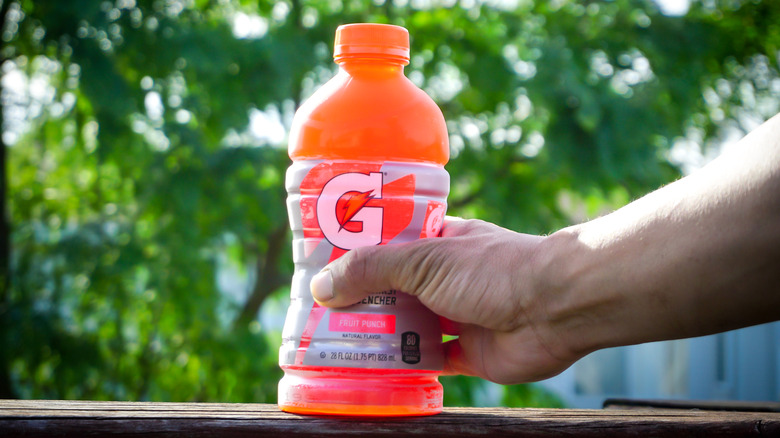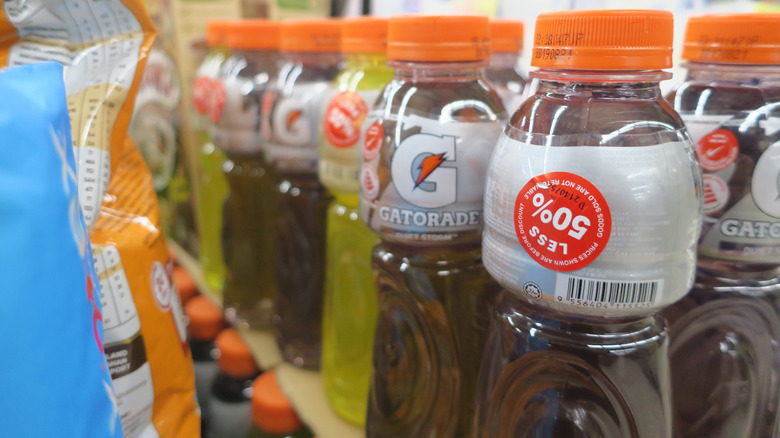When You Drink Too Many Electrolytes, This Is What Happens
Some beverages practically brand themselves on how many electrolytes they provide, and these extra electrolytes can indeed be helpful for people who engage in intense exercise for an hour or longer. For people not in that situation, such drinks may do more harm than good, largely due to added sugars that can contribute to weight gain (per Harvard School of Public Health).
It is also not a good idea to have too many electrolytes in your body. Electrolytes are important, as they help transport nutrients and move wastes out of your cells, and balance your body's pH level and amount of water in your body. They also promote healthy functioning of your heart, brain, nerves, and muscles, according to the U.S. National Library of Medicine. Despite the importance of electrolytes, it is possible to have too much of a good thing. Sports drinks are not the only potential culprit, either; drinking too much water can also lead to an electrolyte imbalance, says Gundersen Health System.
This is why and how to avoid drinking too many electrolytes
Drinking too many electrolytes can lead to an excess in potassium, which may cause muscle weakness. If the potassium excess becomes severe, it may lead to abnormal heart rhythms, and may eventually cause the heart to stop beating, according to the Merck Manual. Signs of overhydration (via sports drinks or even water) include spasms, cramps, headaches, nausea, and cloudy thinking. People with mild cases of overhydration can just stop drinking fluids for a few hours, but if a person has severe symptoms like seizures or fainting, then they need immediate medical attention (per Gundersen Health System).
That being said, overhydration is rare. For most people, getting enough fluids in the first place is a greater concern than making sure you don't get too much. On average, men and women should get 3.7 and 2.7 liters of fluids per day respectively (per Mayo Clinic), but Gundersen Health warns against drinking more than 1 liter of fluid in an hour.


